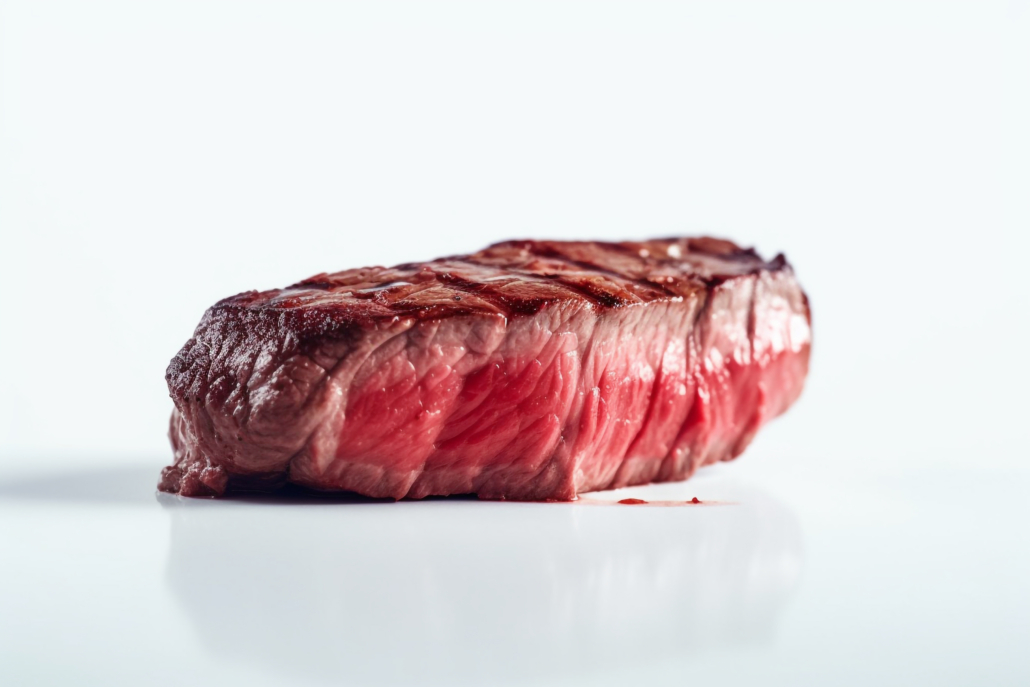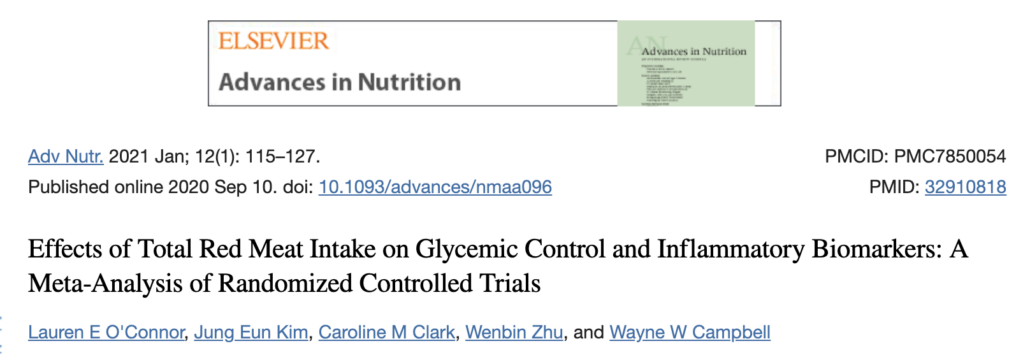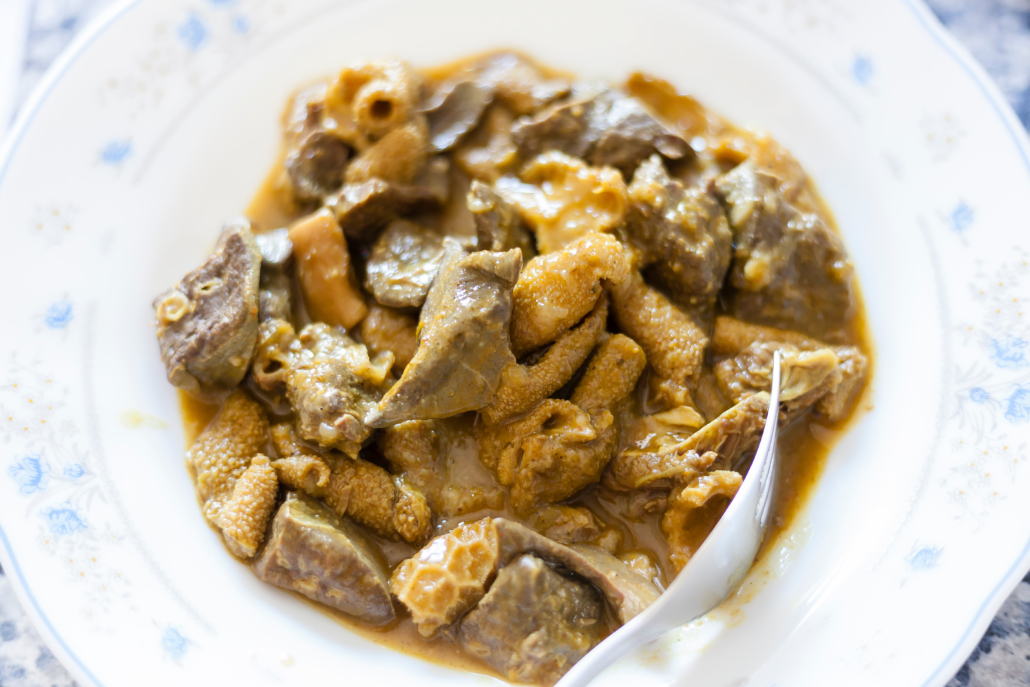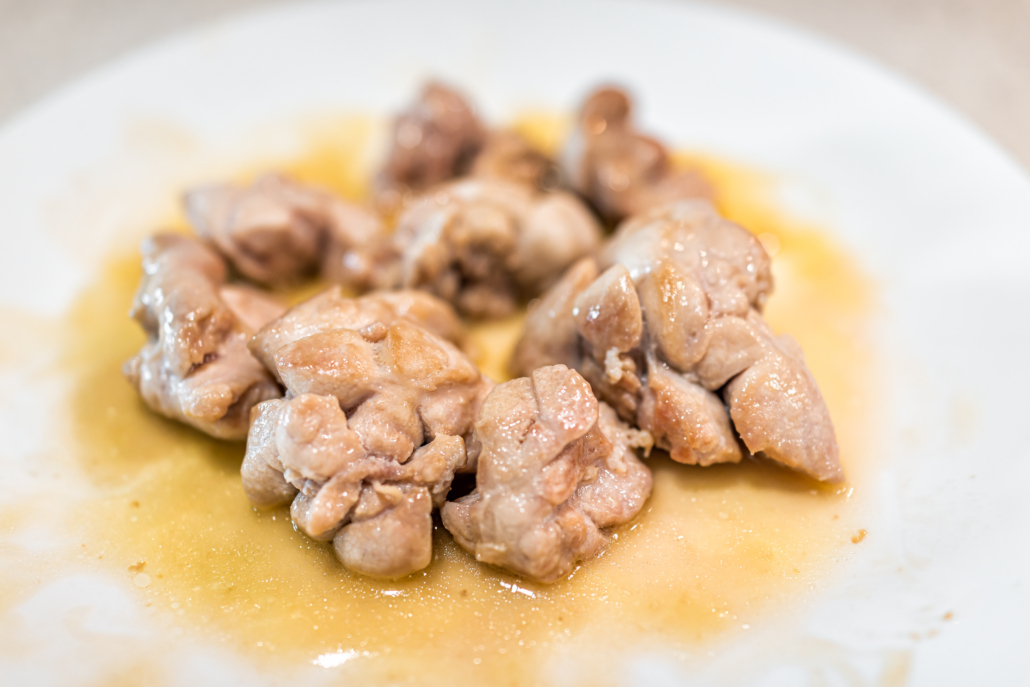We include products in articles we think are useful for our readers. If you buy products or services through links on our website, we may earn a small commission.
Does Red Meat Cause Inflammation? What the Science Says

Despite the anti-meat scare tactics and misinformation that have clogged nutritional media channels since at least the 1960s, high-quality modern research tells a different story.7 Red meat is, in fact, among the most nutrient-dense foods on earth. It provides our bodies with nearly every essential nutrient and in near-perfect proportions for our body’s needs. Fresh red meat is also no longer believed to cause cancer, stroke, or heart disease. Yet one question still comes up amongst both the meat-skeptical, and meat-lovers alike: Does red meat cause inflammation?
The question is understandable when considering a few compounds in meat that, in isolation, may be associated with inflammation. But is there actually a link between red meat and inflammation, or is this another attention-grabbing anti-meat talking point? Let’s follow the latest science to find out.
Table of Contents
What is Inflammation?
Inflammation is a natural process that your immune system activates to fight infections and heal wounds.
When it’s working correctly inflammation turns on when you need it and off when you don’t.
But our modern diets and lifestyles, characterized by inflammatory grains, sugars, and seed “vegetable” oils, keep our inflammation simmering at a chronic level. Our bodies experience these substances as harmful “antigens.” And it responds by constantly producing antibodies that damage healthy tissues and organs.
The importance of reducing inflammation cannot be overstated. The World Health Organization (WHO) determined that diseases related to chronic inflammation kill more people globally than any other factor.
And at least 60% of the American population have at least one chronic inflammatory condition.
Control Studies on Red Meat and Inflammation
As with most nutritional data, there just aren’t many randomized control trials looking at the link between red meat and inflammation. Only RCTs can show a causal link.
The other kind of nutritional study is called an epidemiological or “population” study. These can only identify an association between factors. They are of notoriously poor quality, relying on surveys and confounded by various lifestyle factors. Did the guy eat his red meat with a processed whitebread bun? Or was it a grass-fed ribeye steak drizzled with butter and nothing else? Unless it’s an RCT there’s no way to know.
On the other hand, the gold standard of RCTs is known as a ‘meta-analysis.’ This kind of study collects and analyzes data from all relevant RCTs on record.
A 2021 gold-standard meta-analysis of 24 studies found that total red meat consumption “does not affect changes in biomarkers of glycemic control or inflammation for adults free of, but at risk for, cardiometabolic disease.”

This is significant because the previously held dogma was that red meat correlated with (but not casually linked to) cardiovascular disease and type 2 diabetes.
Another study from 2022 found that red meat consumption affected serum lipid levels of triglycerides but had essentially no effect on total cholesterol, LDL, HDL-C, and the markers of inflammation known as CRP or hs-CRP.7
A study from 2007 where participants replaced carbohydrates with red meat found that doing so reduced markers of inflammation.
Another 2009 study on anemic women found that markers of inflammation for a diet high in red meat were not significantly different from those of participants on a diet high in oil fish. Oily fish are thought to be anti-inflammatory due to their high levels of Omega-3 fatty acids.
There is one other survey study that may provide a more reliable insight into the effects of meat on inflammation. It was conducted by Harvard researchers in 2021 and collected responses from 2029 people on the carnivore diet.
This more restrictive version of the ketogenic diet calls for consuming only animal products, is centered around fatty red meat, and eliminates all plant foods. The researchers found that 89% improved or resolved autoimmune conditions.
Taken together, the preponderance of evidence tells us that red meat is not more inflammatory than non-red meat and oily fish. And that it is likely less inflammatory than carbohydrates.
A Case Study
Dentist and carnivore diet enthusiast Kevin Stock shared his bloodwork after years of eating only meat, and mostly red meat.
One of the markers he had tested was for high-sensitivity C-Reactive Protein test. The liver produces this protein when there’s inflammation in the body. Since inflammation is closely associated with heart disease this marker is also considered a heart disease risk factor.
Ideally, people want this number to be lower than 1.0 and can be measured up to .02 mg/L.
Kevin Stock’s CRP was so low as to be undetectable.
Stock’s conclusion was that it was good to see that he didn’t have any chronic inflammatory conditions. And also that if meat was inflammatory it would have been detected in this test.
Does Red Meat Cause Inflammation: The Bottom Line
When evaluating the science there is no evidence that red meat causes inflammation when compared to other meats. Yet there is evidence that red meat is less inflammatory than dietary carbohydrates.
Unprocessed red meat is a nutrient-dense whole food that should not be restricted by people concerned with reducing inflammation. If you are particularly concerned about inflammation it is likely a good idea to choose grass-fed red meat. Meat from grass-fed animals will have the highest concentrations of omega-3 fatty acids and Conjugated Linoleic Acids, both of which are anti-inflammatory.















